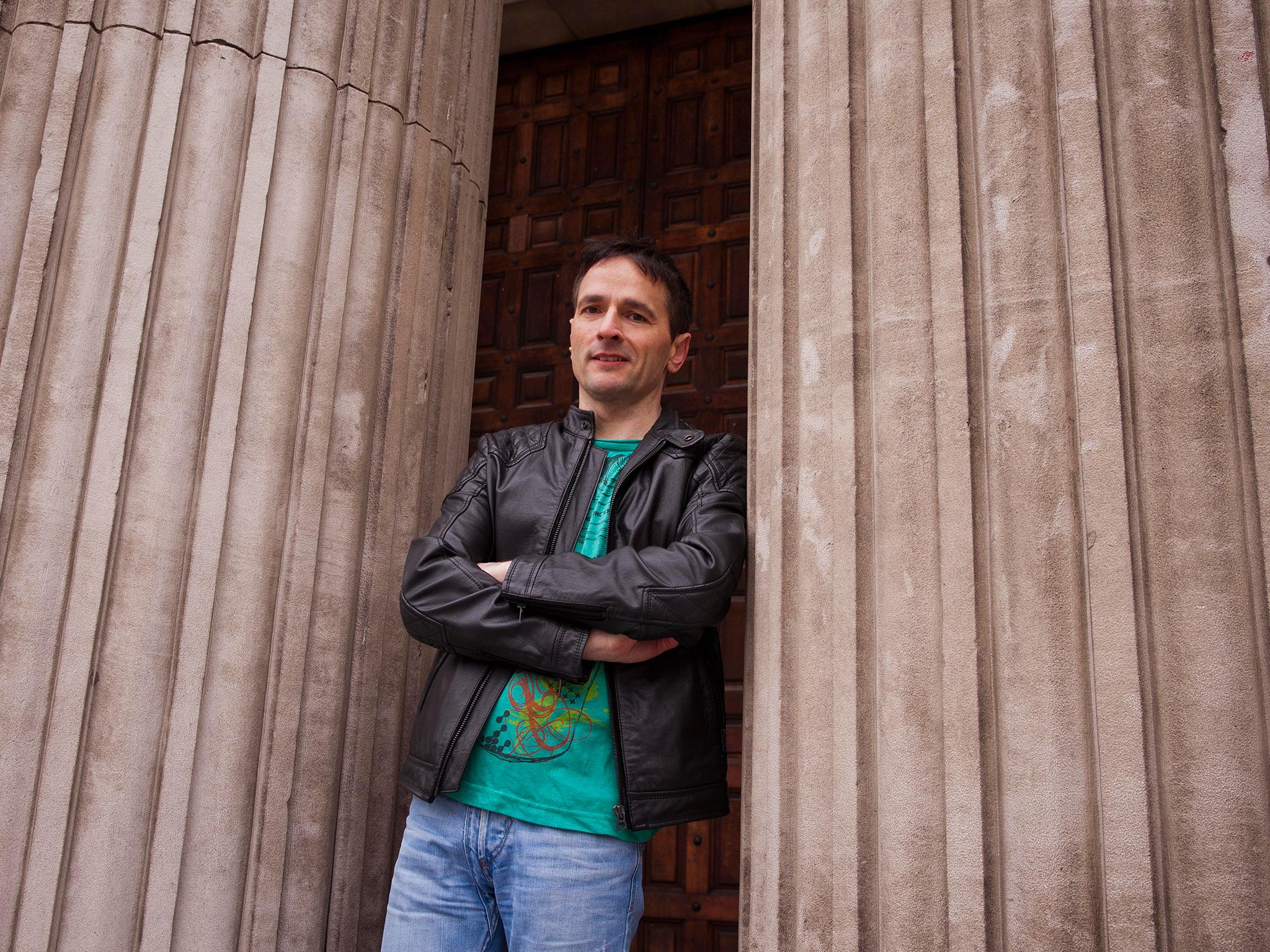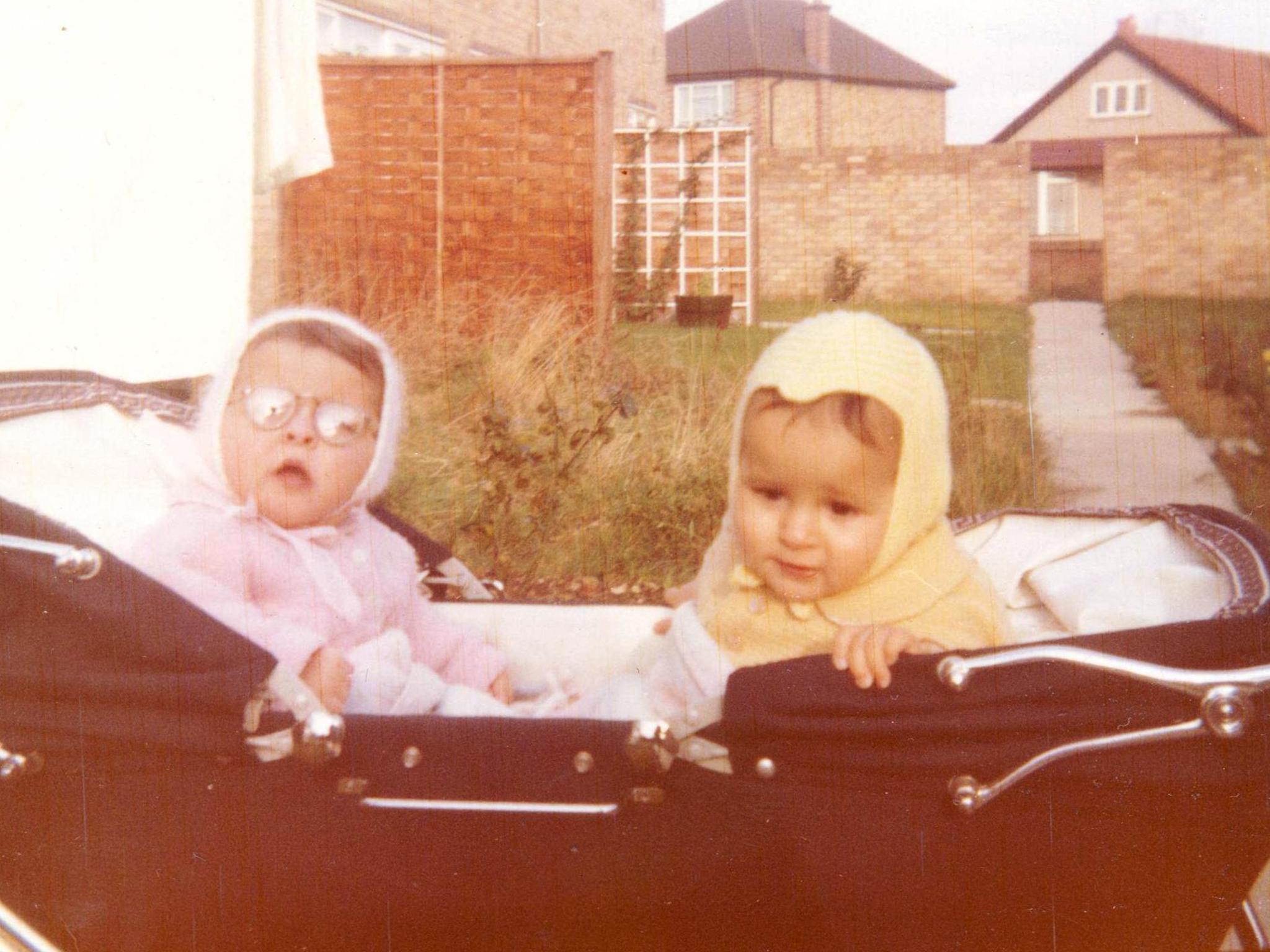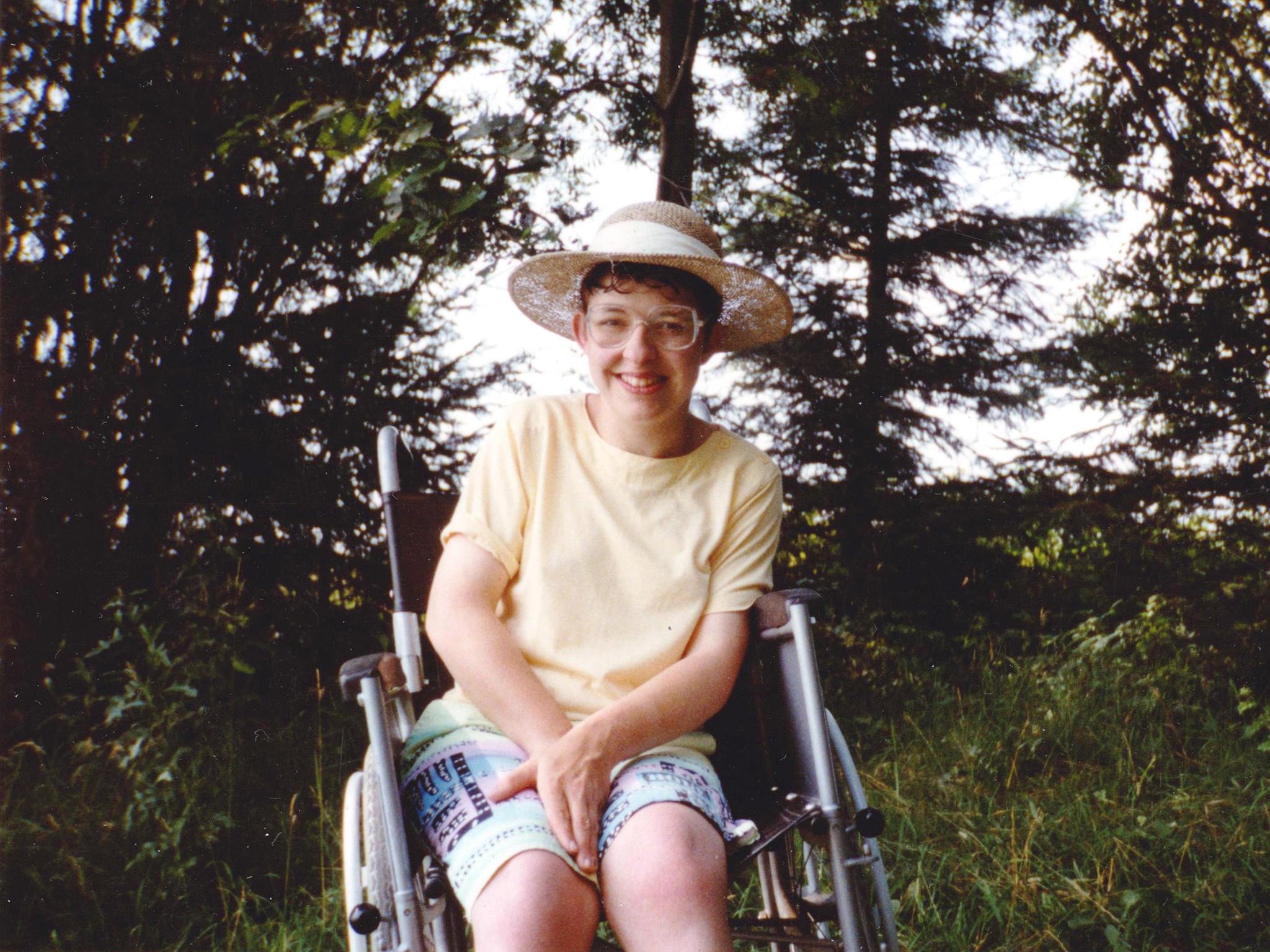'It's been 20 years since Jenny died. But deep down, I will always feel like a twin'
Ed Green explains the close bond he shared wth his sister, despite their very different lives

Twenty years ago, on a dull midweek evening, a terrible event changed my life. My twin sister, Jenny, then 27, died when her clothes caught fire. Since that night, I’ve become someone who had a twin, and whose twin had cerebral palsy. “Had” – the past tense makes all the difference. A difference as stark as the one between disabled and non-disabled twins.
Twinless twins – or lone twins – are people who outlive their twin. Although the mourning process is similar to, say, losing another sibling, there’s something quite strange about losing your twin. Try to imagine, for example, what it would be like for your birthday to become your now-singular, no longer “shared”, birthday. And then try to imagine how you might cope. Through the work in this field by twinless twins Raymond Brandt in the US and Joan Woodward here in the UK, support groups were started in the 1980s and 1990s. As I learnt from attending one of their meetings soon after Jenny’s death, their members have a wide range of experiences, from discovering that a stillborn twin might explain their sense of something missing since the beginnings of life, to a twin lost during childhood, or – as in my case – the death of an adult twin. My contact with a support group helped to raise many questions that, in the years since, have added to my re-evaluation of Jenny’s life and her death. And of my life, as the non-disabled twin.
Jenny and I were born in 1968, 10 weeks premature. I came out of those early days in a neonatal intensive care unit fairly scot-free, while Jenny was later diagnosed with cerebral palsy. Rolling, sitting, crawling, and of course walking – all were delayed for Jenny, if they happened at all. But then again, Jenny was the first to talk, and her speech was normal. “Why can’t she walk?” I kept asking my parents. Jenny’s disability was very difficult to understand. She was so like me, so close to me, while also being was so different. And yet, her disability also tied us together. The visits to hospital for Jenny’s operations affected both of us, and our family life was shaped by considerations such as transport and access. We shared what many twins might be expected to. The in-jokes, the emotional closeness, the awful identical knitted jumpers. Yet Jenny’s disability also led our lives in different directions.
She went to a special school, when Scope was still called the Spastics Society. I remember the taxi rides she had to her school in nearby Leeds and even the sign outside. It read: “Danger: Handicapped Children.”

Like with all children, our childhood was full of assessments. For Jenny, however, the assessments were very practical and specific. What can she do, and what can’t she? What could she potentially be expected to do, and what adaptations would be necessary? Those assessments continued well beyond her schooling. Of course, most of us are used to continuing assessments – appraisals at work, hospital check-ups. But few of us have to face the indignity of repeated checks that will define your state benefits, and by implication determine the lifestyle you can lead. Can you wash yourself, dress yourself, stand up, walk a certain distance? It’s difficult the first time, but imagine having to repeat this experience over several years, when you know full well that your ability to walk, or even balance, is never going to change. Jenny taught me how to take frustration and occasional humiliation on the chin.
Did our closeness get me to recognise what others seemed unable to?
By the time we reached our late teens, we were both busy trying to make our own lives. For me, this meant university down south, a new set of friends, finding work. For Jenny, it meant two further education colleges, a stint in a training flat helping her to live on her own, skills such as selecting facilitators (paid assistants who enable people to carry out everyday tasks). Above all, it meant asserting herself. Those were exciting times for Jenny – the beginnings of the disability rights movement (I remember her and some friends chaining themselves to a train in protest against the lack of disabled access), something of a culture change (she went to public consultations about a new name for the Spastics Society), and most of all, finding her own voice.
Jenny was helped by a small organisation enabling disabled people to live independently, and she was later to chair it, and sit on committees considering planning applications. But Jenny’s problems tended to go unnoticed by those in her circle, who were very much steeped in a social, somewhat anti-medical model of disability. Her spatial awareness was
abysmal, her level of numeracy made budgeting a nightmare, and difficulties with judgement left her clearly vulnerable. On one occasion, she avoided a sexual assault through luck more than anything, and on another, a facilitator cleared off with all her savings.
Her achievements of that time make for some of my proudest memories, and also some of my most painful ones. We seemed to row constantly. I was so tense about whether she’d ever cope without her full needs being recognised (not least, by herself ), and was waiting for a disaster to happen. Did our closeness as twins get me to recognise what others seemed unable to? I had no experience in medicine or social work, but just knew what wasn’t right. I ended up checking on her finances every time I went to visit, and we argued more than we’d ever done as children. The worst moment came in the form of a blazing row with her facilitator – one in which she called me controlling, I called her neglectful, and Jenny was reduced to tears.
By the summer of 1996, Jenny had settled into a specially adapted bungalow, and for the first time, I came away from a visit feeling hopeful about her future. Little over six weeks later, Jenny died in an accident while cooking. Her sleeve must have brushed against a hotplate, leading to a desperate attempt to get help when her clothes were alight. Her charred body was found by a neighbour on the access ramp outside her front door.

Dealing with the aftermath was traumatic – arranging the funeral, giving evidence at the inquest, trying to work out what had happened, supporting my parents, and actually just holding myself together. Over the years, the trauma has softened, I’ve been able to adjust and to reflect on Jenny’s struggles and achievements.
After Jenny’s death, my position as a twin changed. No longer were people pointing out how the two of us differed; instead they were now telling me how alike we’d been. Her death put paid to any illusion of a telepathic connection – I’d been blissfully unaware of it at the time. Not that it stops people asking if I am psychic. There were now new challenges – how to respond to awkward questions such as: “Do you have any nieces or nephews?”
Other things stayed the same: I’m still the twin of someone who had cerebral palsy. I find myself wondering how Jenny would manage the squeeze of austerity with its “bedroom tax” and “personal independence payments”. I think of her wheelchair when I take the stairs rather than the lift at work. As for the birthday dilemma: I’ve found that a short break, ideally removed from the UK, works like a dream.
Ed Green is working on a memoir about Jenny’s life. For details, visit twinned.info
Join our commenting forum
Join thought-provoking conversations, follow other Independent readers and see their replies
Comments
Bookmark popover
Removed from bookmarks